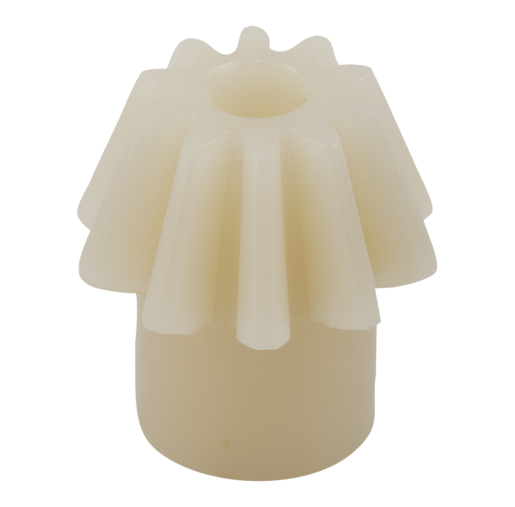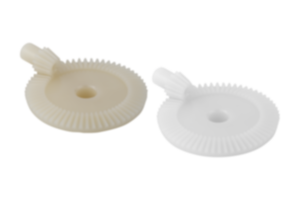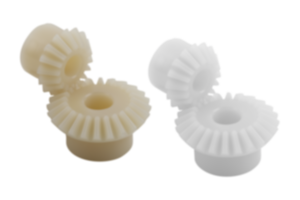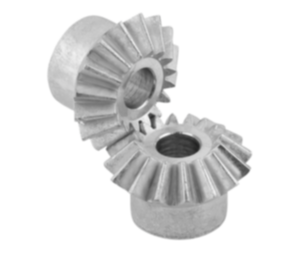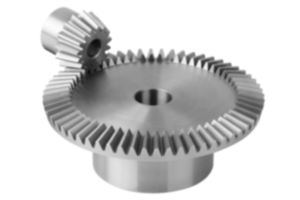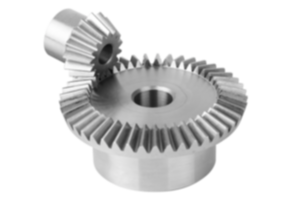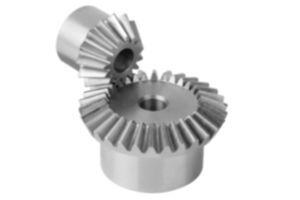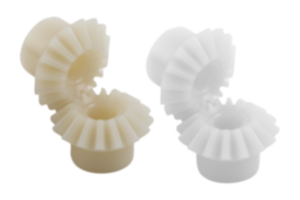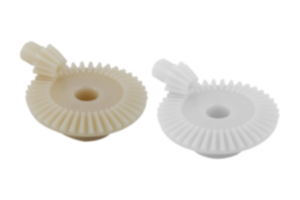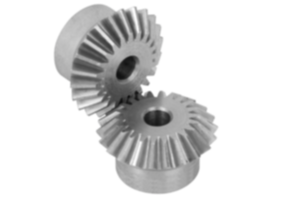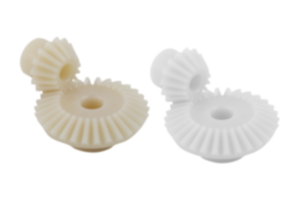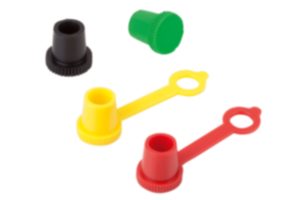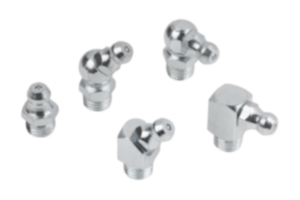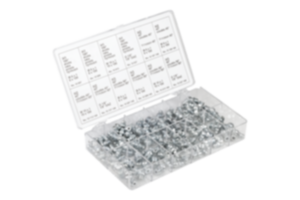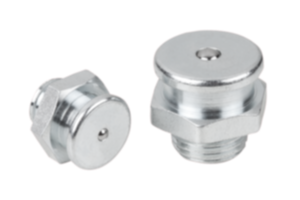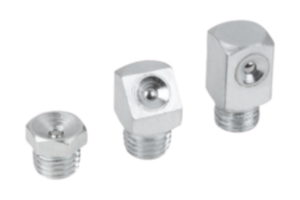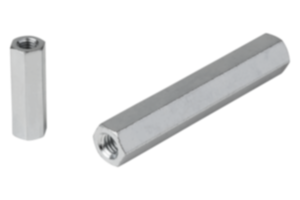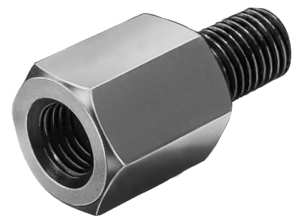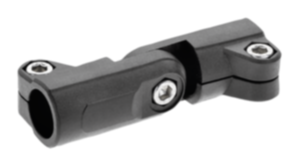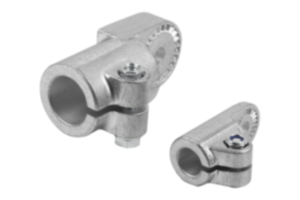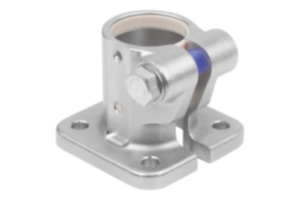Bevel Gear
straight
polyketone
- High hardness
- Lower coefficient of friction
- Long service life
- High security against tooth breakage
£2.93
plus sales tax
Added to your shopping cart
Designation
Bevel Gear
Version 1
straight
Body material
polyketone
D1=Pitch circle diameter
25
D3=Thread
8
L=Width
28,7
N=No. of teeth
10
U=Transmission ratio
1:3
A
52,4
B
15,2
D
29,6
D2
18,8
L1
13
L2
-
Module
2,5
Torque Ncm
125,3
Description
Material
Polyacetal (POM) or polyketone (PK).
Version
Injection moulded, straight teeth. Engagement angle 20°. Axis angle = 90°.
Machined bores from module 1.5.
Polyacetal, white.
Polyketone, ivory tone.
Machined bores from module 1.5.
Polyacetal, white.
Polyketone, ivory tone.
Note
Polyacetal: Standard material with high hardness grade and low coefficient of friction.
Polyketone: Material with significantly longer service life, higher power transmission and greater security against tooth breakage due to the extraordinarily high wear resistance and very good tribological properties.
Can be used under water and other media.
Injection moulded gear wheels may have internal manufacture-related cavities. These may become visible during drilling or broaching. They do not impair the function.
Bevel gear wheels are supplied as single components. To obtain a pair of bevel gear wheels, please order the specified mating gear as well.
Polyketone: Material with significantly longer service life, higher power transmission and greater security against tooth breakage due to the extraordinarily high wear resistance and very good tribological properties.
Can be used under water and other media.
Injection moulded gear wheels may have internal manufacture-related cavities. These may become visible during drilling or broaching. They do not impair the function.
Bevel gear wheels are supplied as single components. To obtain a pair of bevel gear wheels, please order the specified mating gear as well.
Temperature range
-40 °C to +140 °C (taking amount and duration of load into account).
Attention
The torques specified in the tables relate exclusively to the toothing. The shaft diameter, key size, etc. are not taken into account. The permissible load calculations are based on the basic principles of the pitting load capacity of the tooth flanks as well as the occurring tooth root stress. The respective permissible load of a gear wheel depends on so many different factors that the values specified can only be reference values meant to make selection easier. The torque specifications relate to a single tooth. The overlap, which is essential for determining the transmissible torque, occurs depending on the pitch diameter, gear wheel pairing, etc. In the simplest straight tooth cases, an overlap ratio of 1.1 to 1.25 is normal. To increase the overlap, a higher number of teeth with smaller modules is used. A good profile overlap can minimise damage such as pitting.
Important note on downloading CAD models
In order to download our CAD models, you must log in first. If you have not created an account yet, please register under "My Account" (right side of the screen) and follow the instructions.
